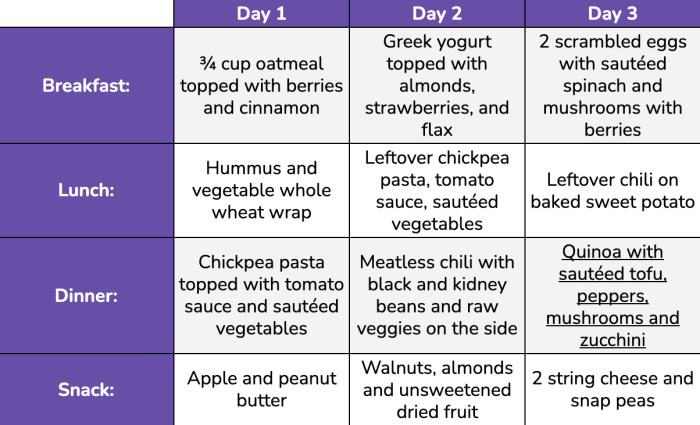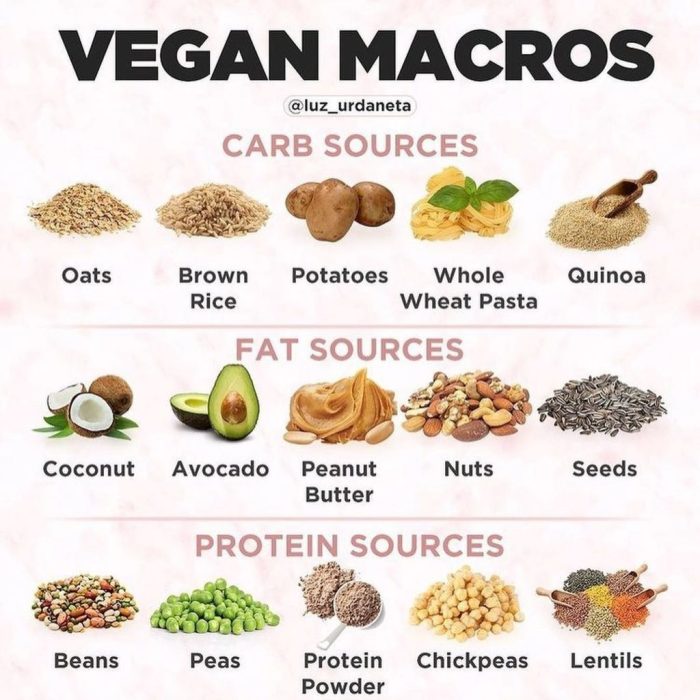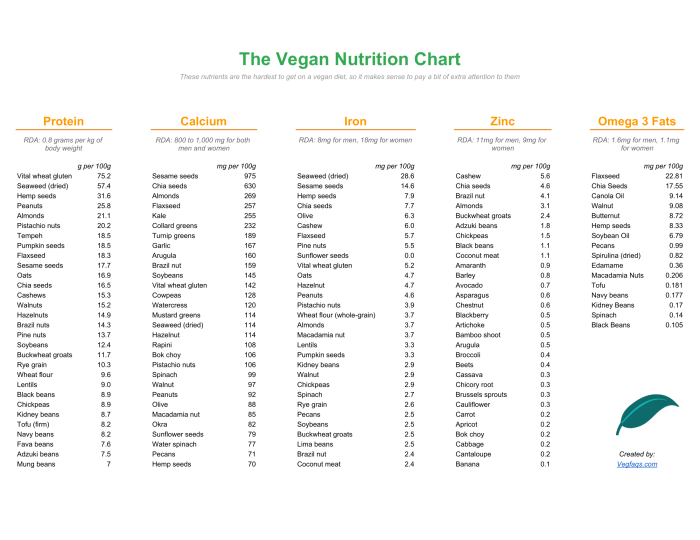Embarking on a vegetarian diet journey? Our comprehensive vegetarian diet list unveils the essence of plant-based nutrition, guiding you through its benefits, challenges, and delectable culinary delights.
Delve into the world of vegetarianism, where health, compassion, and taste intertwine, creating a symphony of well-being.
Introduction
Vegetarian diets are dietary patterns that exclude the consumption of meat, poultry, seafood, and sometimes other animal products such as dairy, eggs, and honey. Vegetarianism is a form of a plant-based diet and is motivated by various reasons, including ethical concerns about animal welfare, environmental sustainability, health benefits, and religious beliefs.
Types of Vegetarian Diets
There are several types of vegetarian diets, each with varying degrees of restrictiveness:
Lacto-vegetarian
Allows dairy products but excludes eggs, meat, poultry, and seafood.
Ovo-vegetarian
Allows eggs but excludes dairy products, meat, poultry, and seafood.
Lacto-ovo vegetarian
Allows both dairy products and eggs but excludes meat, poultry, and seafood.
Vegan
Excludes all animal products, including meat, poultry, seafood, dairy, eggs, and honey.
Benefits of a Vegetarian Diet: Vegetarian Diet List

Embracing a vegetarian diet offers a plethora of health benefits, supported by scientific evidence and personal experiences. This plant-based approach can reduce the risk of chronic diseases, promote weight management, and enhance overall well-being.
Studies have demonstrated that vegetarians have lower rates of heart disease, stroke, type 2 diabetes, and certain types of cancer. The American Heart Association recommends a plant-based diet for heart health, citing its ability to lower blood pressure, improve cholesterol levels, and reduce inflammation.
Weight Management
Vegetarian diets are typically lower in calories and fat than non-vegetarian diets, making them beneficial for weight management. Plant-based foods are rich in fiber, which promotes satiety and reduces hunger cravings. A study published in the journal “Obesity” found that overweight and obese individuals who followed a vegetarian diet lost more weight than those who followed a non-vegetarian diet.
Personal Anecdotes
Numerous individuals have experienced positive health outcomes after adopting a vegetarian diet. One such example is Lisa, a 45-year-old woman who struggled with high blood pressure and cholesterol. After switching to a plant-based diet, her blood pressure and cholesterol levels significantly improved, reducing her risk of heart disease.
Challenges of a Vegetarian Diet

Embracing a vegetarian lifestyle offers numerous health benefits, but it also presents certain challenges that need to be acknowledged and addressed. These challenges primarily revolve around ensuring a balanced and nutritious diet that meets all the essential nutrient requirements of the body.
One of the primary challenges lies in obtaining adequate protein intake. Protein is crucial for building and repairing tissues, producing enzymes, and supporting various bodily functions. While plant-based foods like legumes, lentils, tofu, and nuts contain protein, it’s important to combine different sources to ensure a complete amino acid profile.
Seafood, with its vast array of nutrients, has often sparked curiosity among vegetarians. While some consider it a suitable meat alternative, others adhere strictly to plant-based diets. To clarify this dilemma, let’s explore the nuances of vegetarianism and determine whether seafood aligns with its principles.
Can vegetarians eat seafood ? Delving into the definitions and interpretations of vegetarianism will provide us with a comprehensive understanding.
Another challenge is meeting the body’s iron needs. Iron is essential for producing hemoglobin, which carries oxygen throughout the body. Plant-based sources of iron, such as spinach, lentils, and fortified cereals, have lower bioavailability compared to animal-based sources. To enhance iron absorption, it’s recommended to consume these foods with vitamin C-rich fruits or vegetables.
Overcoming Challenges
- Meal Planning:Careful meal planning is essential to ensure a balanced and nutritious vegetarian diet. It involves incorporating a variety of plant-based foods from different food groups to meet all nutrient requirements.
- Nutrient Supplementation:In some cases, supplementation may be necessary to ensure adequate intake of certain nutrients, such as vitamin B12, iron, and omega-3 fatty acids.
- Food Fortification:Consuming fortified foods, such as cereals, plant-based milk, and nutritional yeast, can help boost the intake of essential nutrients.
- Consulting a Healthcare Professional:Seeking guidance from a registered dietitian or other qualified healthcare professional can provide personalized advice on meeting nutrient needs and addressing any specific concerns.
Sample Vegetarian Meal Plan
A vegetarian diet is one that excludes meat, poultry, fish, and seafood. There are many different reasons why people choose to adopt a vegetarian lifestyle, including ethical concerns about animal welfare, environmental sustainability, and personal health. If you’re considering making the switch to a vegetarian diet, it’s important to plan ahead to ensure that you’re getting all the nutrients you need.
Here is a sample vegetarian meal plan for a week, with a variety of recipes and meal ideas. All meals are designed to provide approximately 2,000 calories per day.
Vegetarianism encompasses various dietary practices, but one common question arises: can vegetarians eat seafood ? While some vegetarians choose to include fish and other aquatic animals in their diet, others adhere to a strict plant-based regimen.
Breakfast
- Monday:Oatmeal with berries and nuts (2 cups cooked oatmeal, 1/2 cup berries, 1/4 cup nuts)
- Tuesday:Tofu scramble with vegetables (1/2 block tofu, 1/2 cup chopped vegetables)
- Wednesday:Whole-wheat toast with avocado and hummus (2 slices whole-wheat toast, 1/2 avocado, 1/4 cup hummus)
- Thursday:Smoothie made with fruits, vegetables, and yogurt (1 cup fruit, 1 cup vegetables, 1 cup yogurt)
- Friday:Pancakes made with whole-wheat flour and fruit (3 pancakes, 1/2 cup fruit)
- Saturday:Waffles made with whole-wheat flour and berries (3 waffles, 1/2 cup berries)
- Sunday:French toast made with whole-wheat bread and fruit (3 slices French toast, 1/2 cup fruit)
Lunch, Vegetarian diet list
- Monday:Salad with grilled tofu, quinoa, and vegetables (1 cup salad greens, 1/2 cup grilled tofu, 1/2 cup cooked quinoa, 1/2 cup chopped vegetables)
- Tuesday:Lentil soup with whole-wheat bread (1 bowl lentil soup, 2 slices whole-wheat bread)
- Wednesday:Veggie burger on a whole-wheat bun with lettuce, tomato, and onion (1 veggie burger, 1 whole-wheat bun, 1/2 cup lettuce, 1/2 cup tomato, 1/4 cup onion)
- Thursday:Bean burrito with brown rice and vegetables (1 whole-wheat tortilla, 1/2 cup cooked beans, 1/2 cup cooked brown rice, 1/2 cup chopped vegetables)
- Friday:Pasta salad with vegetables and chickpeas (1 cup cooked pasta, 1/2 cup chopped vegetables, 1/2 cup chickpeas)
- Saturday:Pizza with whole-wheat crust and vegetable toppings (2 slices pizza)
- Sunday:Grilled cheese sandwich on whole-wheat bread with tomato soup (2 slices whole-wheat bread, 1/2 cup tomato soup)
Dinner
- Monday:Vegetarian chili with cornbread (1 bowl vegetarian chili, 1 piece cornbread)
- Tuesday:Shepherd’s pie with mashed potatoes (1 serving shepherd’s pie, 1/2 cup mashed potatoes)
- Wednesday:Stir-fry with tofu, vegetables, and brown rice (1 cup stir-fry, 1/2 cup cooked brown rice)
- Thursday:Black bean tacos with whole-wheat tortillas (2 black bean tacos, 2 whole-wheat tortillas)
- Friday:Vegetable lasagna (1 serving vegetable lasagna)
- Saturday:Vegetarian enchiladas with rice and beans (2 vegetarian enchiladas, 1/2 cup rice, 1/2 cup beans)
- Sunday:Roasted vegetables with quinoa (1 cup roasted vegetables, 1/2 cup cooked quinoa)
Snacks
- Fruits and vegetables
- Nuts and seeds
- Yogurt
- Whole-wheat crackers
- Hummus
- Trail mix
Vegetarian Recipes
Vegetarian cuisine offers a diverse array of flavors and cuisines, catering to various taste preferences. From hearty stews to refreshing salads, the possibilities are endless. This section presents a collection of vegetarian recipes, showcasing the versatility and deliciousness of plant-based cooking.
The recipes featured below encompass a range of cuisines, including Indian, Italian, Mexican, and more. Each recipe provides step-by-step instructions and a complete ingredient list, making it easy to recreate these dishes at home.
Indian Vegetarian Recipes
- Chana Masala: A flavorful chickpea curry with a blend of spices, tomatoes, and onions.
- Palak Paneer: A creamy spinach dish with soft paneer cheese cubes, a classic Indian vegetarian dish.
- Vegetable Biryani: A fragrant rice dish with a variety of vegetables, spices, and herbs.
Italian Vegetarian Recipes
- Pasta Primavera: A colorful pasta dish with a medley of fresh vegetables, tossed in a light sauce.
- Vegetarian Lasagna: A hearty and comforting layered dish with vegetables, cheese, and pasta.
- Caprese Salad: A refreshing salad with ripe tomatoes, fresh mozzarella, and basil, drizzled with olive oil.
Mexican Vegetarian Recipes
- Black Bean Tacos: Tacos filled with seasoned black beans, topped with fresh salsa and guacamole.
- Vegetarian Enchiladas: Corn tortillas filled with a vegetable mixture, topped with a savory sauce.
- Elote: Grilled corn on the cob slathered with a creamy sauce made with mayonnaise, cotija cheese, and chili powder.
Other Vegetarian Recipes
- Thai Green Curry: A fragrant curry with a blend of green chilies, coconut milk, and vegetables.
- Vegetable Stir-Fry: A quick and easy dish with a variety of vegetables stir-fried in a flavorful sauce.
- Vegetarian Sushi: Sushi rolls filled with a variety of vegetables, such as cucumber, avocado, and carrots.
Additional Resources
Exploring a vegetarian diet further requires reliable information and support. Here are some valuable resources to assist you:
Websites and Books
- Vegetarian Resource Group: https://www.vrg.org/
- Academy of Nutrition and Dietetics: https://www.eatright.org/health/vegetarian-and-vegan-diets
- The Vegetarian Society: https://www.vegsoc.org/
- The China Study: https://www.amazon.com/China-Study-Comprehensive-Nutrition-Implications/dp/1570672402
- How Not to Die: Discover the Foods Scientifically Proven to Prevent and Reverse Disease: https://www.amazon.com/How-Not-Die-Discover-Scientifically-Prevent/dp/1250112855
Support Groups and Online Communities
Connecting with other vegetarians can provide motivation, support, and recipe ideas:
- Reddit’s Vegetarian Community: https://www.reddit.com/r/vegetarian/
- Facebook’s Vegetarian and Vegan Support Group: https://www.facebook.com/groups/vegetarianandvegansupportgroup/
- Meetup’s Vegetarian and Vegan Groups: https://www.meetup.com/topics/vegetarian-vegan/
Healthcare Professionals
Consulting with a registered dietitian or other healthcare professional can provide personalized guidance and address specific dietary needs:
- Academy of Nutrition and Dietetics’ Find a Registered Dietitian: https://www.eatright.org/find-a-registered-dietitian
- American Dietetic Association’s Find a Registered Dietitian: https://www.eatrightpro.org/find-a-registered-dietitian
- American Heart Association’s Find a Heart-Healthy Healthcare Professional: https://www.heart.org/en/get-involved/volunteer/health-care-professionals
Closing Summary

Whether you’re a seasoned vegetarian or just starting to explore plant-based eating, this vegetarian diet list empowers you with the knowledge and inspiration to embrace a healthier, more sustainable lifestyle. Remember, every bite is a choice, and choosing a vegetarian diet is a choice for a healthier you and a more compassionate world.
FAQs
What are the different types of vegetarian diets?
Vegetarian diets vary in their level of restrictiveness, including lacto-vegetarian (consumes dairy), ovo-vegetarian (consumes eggs), lacto-ovo vegetarian (consumes dairy and eggs), and vegan (excludes all animal products).
How do I ensure I get enough protein on a vegetarian diet?
Plant-based sources of protein include legumes, beans, lentils, tofu, tempeh, nuts, and seeds. Combining different plant-based protein sources throughout the day helps meet protein requirements.
Are there any risks associated with following a vegetarian diet?
While vegetarian diets are generally healthy, it’s important to ensure adequate intake of essential nutrients like iron, vitamin B12, calcium, and vitamin D. Consulting with a healthcare professional or registered dietitian can help address any potential nutritional concerns.